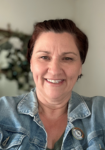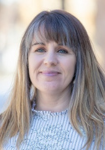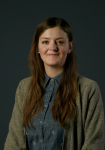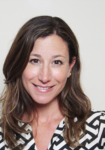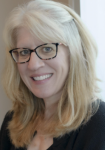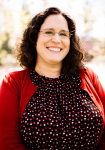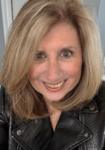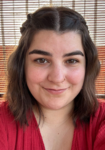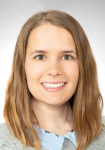- Home
- About
- Organization
- Instructional and Leadership Development Centre
Join us for the Universal Design for Learning (UDL) Institute. The institute will
showcase speakers who will broaden your understanding of UDL with discussions on the
intersection of indigenization, technology and accessibility.
| Date: |
May 30, 2024 |
| Time: |
9 a.m. - 2:30 p.m. |
| Location: |
Saskatchewan Polytechnic, Saskatoon Campus, Idylwyld Dr.
1130 Idylwyld Dr N
or
Virtually via Zoom.
|
Registration
Registration closes May 24, 2024 at noon.
Register now
Schedule
9 - 9:10 a.m. – Welcome
Opening prayer by Elder Rick Daniels
Location:
- In person, Room 104
- Virtually via Zoom
Refreshments will be provided.
9:10 - 9:45 a.m. – Opening presentation
Indigenization and Universal Design for Learning
Presenters: Carrie McCloy and Tasha Maddison (Saskatchewan Polytechnic)
Location:
- In person, Room 104
- Virtually via Zoom
We will examine the intersection of universal design and Indigenous ways of knowing
and being by integrating traditional Indigenous practices of coming to know, as well
as western ways of conducting research.
Carrie McCloy
Indigenization & reconciliation facilitator, Instructional and Leadership Development
Centre
Saskatchewan Polytechnic
Biography
×Carrie McCloy
Carrie McCloy finds fulfillment in her role as an Indigenous facilitator with the
Instructional and Leadership Development Centre at Saskatchewan Polytechnic. Equipped
with a Master of Social Work, her thesis titled “Indigenous adoptees’ experiences
of racism in transracial adoption in Saskatchewan: Discovering truth and being authentic,”
has notably filled a gap in research within the province. Carrie looks forward to
expanding her research trajectory as she embarks on a Doctorate in Education this
summer, with specific focus on Indigenous traditions and practices that can enrich
the field of education.
Tasha Maddison
Educational developer, Instructional and Leadership Development Centre
Saskatchewan Polytechnic
Biography
×Tasha Maddison
Tasha Maddison works as an educational developer in the Instructional and Leadership
Development Centre at Saskatchewan Polytechnic. She previously worked as a librarian
at Saskatchewan Polytechnic and the University of Saskatchewan. Tasha completed her
M.L.I.S. through the online program at Wayne State University in 2012 focusing on
reference and instruction for academic libraries. Her research interests include distributed
and online learning, UDL, and learning technology.
10 - 10:45 – Concurrent sessions
Moving From Accommodation to Accessibility in Digital Contexts
Presenter: Julie Maier (University of Saskatchewan)
Location:
- In person, Room 128
- Virtually via Zoom
This session will examine current approaches to digital accessibility in Saskatchewan
post-secondary education and highlight the differences between a reactive system based
on accommodation and a proactive system building towards true accessibility. With
a focus on the POUR (perceivable, operable, understandable and robust) principles,
participants will look at some actionable approaches and available tools and resources
to make digital learning materials and environments better for all learners. Maier
will also touch upon strategies the Gwenna Moss Centre for Teaching and Learning at
USask has used to strive towards greater accessibility, and some of the related challenges
and opportunities that exist in our current provincial context.
Julie Maier, M.Ed., Educational Technology & Design
Instructional designer, Gwenna Moss Centre for Teaching & Learning
University of Saskatchewan
Biography
×Julie Maier, M.Ed., Educational Technology & Design
Julie Maier (M.Ed., Educational Technology & Design) is an instructional designer
in the Gwenna Moss Centre for Teaching & Learning at the University of Saskatchewan,
where she works in course- and program-level design and development for online and
blended learning. In collaborating with faculty and instructors, Julie strives to
build courses that empower teachers to adapt and grow their own teaching styles for
online/blended formats, while also empowering learners through flexible, interactive,
and socially engaging learning experiences.
Applying a UDL and OER Framework in an Accessible Course Design
Presenters: Lisa Fanelli and Karrie L. Morin (Goodwin University)
Location:
This presentation aims to unveil the approach of bringing Open Educational Resources
(OER) and UDL principles together to increase student accessibility and discuss the
implications for future course development. In UDL and OER foundations, it is understood
that the learner is not lacking the tools to perform, rather, the absence of accessibility
to learning resources, as well as the delivery of content not being optimal and conducive
to appreciate the variability in learning. Research is vast for UDL and OER frameworks
individually; however, there is limited discussion incorporating both methodologies
specific to (re)designing a course. The authors, both advanced teaching fellows in
UDL, integrated UDL principles into a Leadership in Health course while simultaneously
converting it into an OER course.
Outcomes:
- Recognize components of the OER process in your own curricular development.
- Connect UDL principles to touchpoints in your courses.
- Generate ideas for combining OER and UDL resources to enhance accessibility to all
learners.
Dr. Lisa Fanelli
Associate professor and program director, Health Science and Public Health programs
Goodwin University
Biography
×Dr. Lisa Fanelli
Dr. Lisa Fanelli is an associate professor and program director for the Health Science
and Public Health programs at Goodwin University, East Hartford, CT, USA. Dr. Fanelli
is a credentialed leader in academia, a leadership fellow, a senior Universal Design
for Learning teaching fellow, a Dementia Friend Champion, and an Age-Inclusive Champion
leading the path to an Age-Friendly University designation for Goodwin University
and the University of Bridgeport in CT, USA. Dr. Fanelli values the impact that community-based
learning has on student success as evidenced by her vast experience as director of
Clinical Education at Quinnipiac University, program director of Health Sciences to
PA and PharmD at the University of Saint Joseph, and continued community partnership
development at Goodwin University.
Karrie Morin
Director, Center for Teaching Excellence
Goodwin University
Biography
×Karrie Morin
Karrie Morin is the director of the Center for Teaching Excellence (CTE) at Goodwin
University. She teaches as an adjunct faculty member for the School of Applied Liberal
Arts and Social Sciences. She received a UDL teaching fellowship in 2018 and became
a senior teaching fellow through the Advanced UDL Institute in 2022. Karrie is the
author of the chapter, “UDL and the Freedom to Fail: Technology, Games, Innovation
and Play” in the book, UDL University: Designing for Variability Across the Postsecondary
Curriculum, published by Cast. In 2023, Karrie became the co-facilitator for the University
of Bridgeport UDL Institute, a testament to her expertise and influence in the field.
With a team of faculty and staff, Karrie designed the Goodwin Teaches: Universal Design
for Learning Stories in Higher Education Podcast that debuted in May of 2023.
11 - 11:45 a.m. – Concurrent sessions
Developing Active and Inclusive Strategies to Engage All Learners
Presenter: Adam Finkelstein (McGill University)
Location:
- In person, Room 128
- Virtually via Zoom
Students need to be actively engaged in order to create opportunities for meaningful,
deep learning. This workshop will provide instructors with practical examples and
scenarios on how to take advantage of the affordances provided by physical or digital
spaces to better support student learning. We will discuss ways to incorporate active
learning spaces and different technology tools, including generative AI into both
strategies and assessments. Throughout the workshop, there will be opportunities for
attendees to experience and apply those strategies to improve current or future courses,
allowing them to foster an inclusive environment for learning.
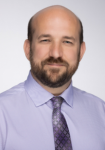
Adam Finkelstein
Associate director, Learning Environments (Physical and Digital), Teaching and Learning
Services
McGill University
Biography
×Adam Finkelstein
Adam Finkelstein is currently associate director, Learning Environments (Physical
and Digital) at Teaching and Learning Services at McGill University where he develops
university-wide initiatives to improve teaching and learning environments. His responsibilities
include both the physical (learning spaces) as well as the digital (online ecosystem
of teaching and learning tools). He and his team have worked with thousands of instructors
to help them improve their teaching and learning with many faculty development initiatives,
from active learning, to assessment, to inclusive space design. He is currently the
chair of two groups responsible for the selection, design and renovation of all classrooms
and teaching labs at McGill, including numerous new Active Learning Classrooms and
Labs. He is currently co-lead of the Learning Spaces Design Community Group for EDUCAUSE
and is a member of core team and author of the Learning Spaces Rating System (LSRS).
Adam has over 20 years of experience with innovative physical and digital learning
spaces including designing, teaching, and assessing them. He has given numerous international
keynotes, presentations, and workshops in many different areas such as learning science,
learning technologies and learning spaces.
When Trying Harder Isn’t the Answer: The Impact of Neuro-Normative Bias in our Systems
- and What Educators Can Do It
Presenters: Jeni Dulek, Alyssa Phillips, Jenae Wadleigh, Michelle Gorenber (Pacific
University)
Location:
This presentation introduces the neuro-normative biases built into the higher education
system, using the social model of disability to highlight how common teaching practices
can disadvantage and distress neurodivergent learners. Presenters will guide participants
to begin to unlearn neuro-normativity and will introduce universal design for learning
and neurodiversity affirming pedagogy as practices that support the learning and mental
health of neurodivergent students.
Jeni Dulek
Assistant professor, School of Occupational Therapy
Pacific University
Biography
×Jeni Dulek
Jeni Dulek is an assistant professor in the School of Occupational Therapy at Pacific
University in Hillsboro, Oregon, where she teaches courses on OT foundations and the
teaching-learning process. She holds a B.Sc. in Occupational Therapy, a post-professional
OTD with an emphasis in Education, and an M.Sc. in Instructional Design and Technology.
Michelle Gorenberg
Mentor, adjunct faculty member and curricular consultant
Pacific University
Biography
×Michelle Gorenberg
Michelle Gorenberg has been an OT for almost 40 years specializing in children’s mental
health. Dr. Gorenberg has been an occupational therapy educator for the past 15 years.
Having recently retired from her full-time academic appointment as associate professor
at Widener University, Dr. Gorenberg currently mentors new faculty, serves as an adjunct
faculty member and curricular consultant at Widener University. She holds an M.Sc.
in Occupational Therapy from Tufts University and a post-professional OTD and certificate
in Teaching in the Digital Age from Thomas Jefferson University.
Jenae Wadleigh
Student, second year Occupational Therapy
Pacific University
Biography
×Jenae Wadleigh
Jenae Wadleigh is a second year OTD student at Pacific University in Hillsboro, Oregon.
She received a BA from UC Davis in psychology and communications. Prior to attending
her Occupational Therapy program, she worked in mental health with adults with severe
mental illness as a transcranial magnetic stimulation technician. Her primary interests
in the OT field include mental health, universal design, pelvic health, sensory integration,
and equity and accessibility for neurodivergent individuals. Jenae is neurodivergent
herself and has personal experience with navigating higher education and confronting
neurotypical norms that have impacted her learning. She is passionate about addressing
the barriers neurodivergent folks face in academia and creating learning environments
that function for all learners.
Alyssa Phillips
Assistant professor and clinical education coordinator, School of Occupational Therapy
Pacific University
Biography
×Alyssa Phillips
Alyssa Phillips is an assistant professor and clinical education coordinator in the
School of Occupational Therapy at Pacific University in Hillsboro, Oregon, where she
teaches courses on anatomy, kinesiology, and adult physical disability. She holds
a masters degree in Occupational Therapy and a Clinical Science doctorate with a focus
on knowledge translation and adolescent pain management.
Noon - 1 p.m. – Lunch
Lunch (on your own) and networking
1 - 2:30 p.m. – Keynote presentation
Space Matters: Building Inclusive Physical and Digital Learning Environments
Presenter: Adam Finkelstein (McGill University)
Location:
- In person, Room 104
- Virtually via Zoom
While higher education can support active learning anywhere, where we learn has a
significant impact on how we learn. In this session, we will explore what we know
about how students learn and why inclusion is critical for student success, while
keeping faculty and student wellness in mind. We will examine evidence on the impact
that different environments can have on learning, and why space matters for all learning.

Adam Finkelstein
Associate director, Learning Environments (Physical and Digital), Teaching and Learning
Services
McGill University
Biography
×Adam Finkelstein
Adam Finkelstein is currently associate director, Learning Environments (Physical
and Digital) at Teaching and Learning Services at McGill University where he develops
university-wide initiatives to improve teaching and learning environments. His responsibilities
include both the physical (learning spaces) as well as the digital (online ecosystem
of teaching and learning tools). He and his team have worked with thousands of instructors
to help them improve their teaching and learning with many faculty development initiatives,
from active learning, to assessment, to inclusive space design. He is currently the
chair of two groups responsible for the selection, design and renovation of all classrooms
and teaching labs at McGill, including numerous new Active Learning Classrooms and
Labs. He is currently co-lead of the Learning Spaces Design Community Group for EDUCAUSE
and is a member of core team and author of the Learning Spaces Rating System (LSRS).
Adam has over 20 years of experience with innovative physical and digital learning
spaces including designing, teaching, and assessing them. He has given numerous international
keynotes, presentations, and workshops in many different areas such as learning science,
learning technologies and learning spaces.
Parking
Free event parking is available in the Special Event parking lot only. The Special
Event parking lot is located behind the warehouse and is accessible from 33rd Street.
Please see the map for the location details.
Contact us
Questions? Please email ildc.pd@saskpolytech.ca

